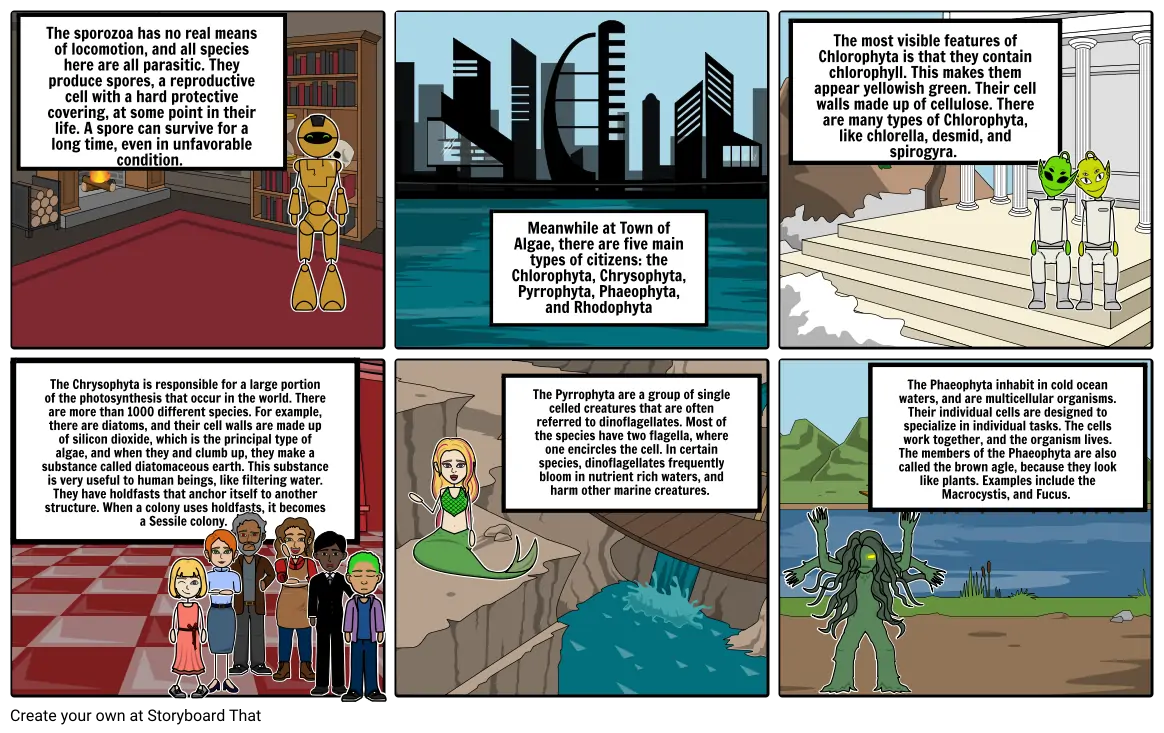Kingdom Protista and the Towns of Protozoa & Algae Pt2

Storyboard Text
- The sporozoa has no real means of locomotion, and all species here are all parasitic. They produce spores, a reproductive cell with a hard protective covering, at some point in their life. A spore can survive for a long time, even in unfavorable condition.
- Meanwhile at Town of Algae, there are five main types of citizens: the Chlorophyta, Chrysophyta, Pyrrophyta, Phaeophyta, and Rhodophyta
- The most visible features of Chlorophyta is that they contain chlorophyll. This makes them appear yellowish green. Their cell walls made up of cellulose. There are many types of Chlorophyta, like chlorella, desmid, and spirogyra.
- The Chrysophyta is responsible for a large portion of the photosynthesis that occur in the world. There are more than 1000 different species. For example, there are diatoms, and their cell walls are made up of silicon dioxide, which is the principal type of algae, and when they and clumb up, they make a substance called diatomaceous earth. This substance is very useful to human beings, like filtering water. They have holdfasts that anchor itself to another structure. When a colony uses holdfasts, it becomes a Sessile colony.
- The Pyrrophyta are a group of single celled creatures that are often referred to dinoflagellates. Most of the species have two flagella, where one encircles the cell. In certain species, dinoflagellates frequently bloom in nutrient rich waters, and harm other marine creatures.
- The Phaeophyta inhabit in cold ocean waters, and are multicellular organisms. Their individual cells are designed to specialize in individual tasks. The cells work together, and the organism lives. The members of the Phaeophyta are also called the brown agle, because they look like plants. Examples include the Macrocystis, and Fucus.
Over 30 Million Storyboards Created
No Downloads, No Credit Card, and No Login Needed to Try!
